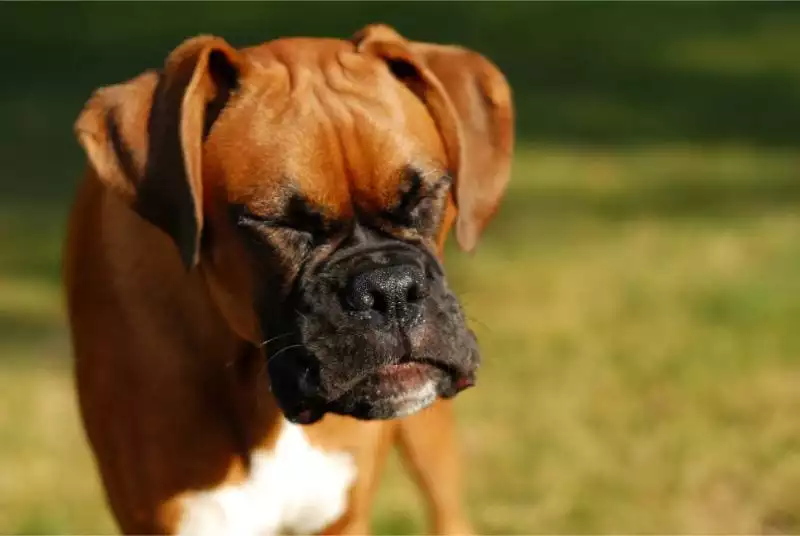The Reverse Sneeze and Other Wheezes that Honk in the Night

There can certainly be some strange noises that come from your pet. While anything out of the ordinary is likely to raise alarm, some unusual utterances can be quite normal. Others, however, are certainly cause for concern.
Thankfully for pet owners, Schertz Animal Hospital is here to help them discern that harmless reverse sneeze from more ominous issues.
The Reverse Sneeze
Perhaps the most common pet noise that owners worry about is the reverse sneeze. Thankfully, it is often totally normal!
Reverse sneezing in pets can look scary if you don’t know what is happening. Pets often stand with an extended neck and then pull back to inhale in a dramatic fashion through their nose, making a gagging type noise. This can happen several times in a row, with the episode typically being over in a few seconds.
The reverse sneeze is much like a regular sneeze, being a reflexive reaction to irritation of the back of the throat. Also like regular sneezing, it is not a big deal, although if it is happening a lot it may indicate that there is a problem causing the irritation that needs to be addressed.
Other Noises and When to Worry
Pets might grunt, groan, snort, sniffle, wheeze, or goose honk. Sometimes these are self-limiting, like when we suddenly snore for a night due to an allergy flare up. Others, though, can indicate something more serious.
We see pets every day for evaluation of noises that they are making. Some of the more common causes we diagnose include:
Upper respiratory infections — Both cats and dogs can contract upper respiratory infections caused by viruses or bacteria. Sneezing, a honking cough, watery eyes, and nasal discharge are commonly symptoms of things like kennel cough and herpesvirus infections.
Brachycephalic syndrome — Short-snouted breeds like Bulldogs and Persian cats are not exactly known for being able to breathe easy. A combination of small nasal openings, a long soft palate, and a narrow windpipe can result in all sorts of crazy noises.
Collapsing trachea — Sometimes due to genetics, trauma, or circumstances such as age and weight the windpipe in certain pets is prone to collapsing in on itself. This is irritation and will often cause coughing, especially when the pet is excited or very active.
Asthma — Lower airway inflammation is not uncommon, especially in cats. It can result in wheezing, coughing, and labored breathing.
Heart disease — If a cardiac condition that the body cannot compensate for is present, fluid may build in the lungs. This can cause coughing and retching.
So how is a pet owner to know whether Fluffy just sniffed a nose-full of pollen or if she is in congestive heart failure?
The answer is always to be safe rather than sorry. We want to see them right away, especially if breathing seems labored, the gums are blue or gray, your pet seems weak or is not eating well, or there are signs of distress.
Many respiratory problems can appear similarly, and the only way to assess their seriousness is often through physical examination and diagnostic testing.
Call us right away if you are concerned about your pet. While it may turn out to be a normal reverse sneeze, we would rather err on the side of caution.
Share This Article
About
Schertz Animal Hospital
Since 1976, Schertz Animal Hospital has offered the greater San Antonio area outstanding pet care. Our state-of-the-art animal hospital in Schertz, TX compliments our stress-free handling and experienced veterinary staff. Make an appointment online or give us a call at (210) 659-0345 today!
